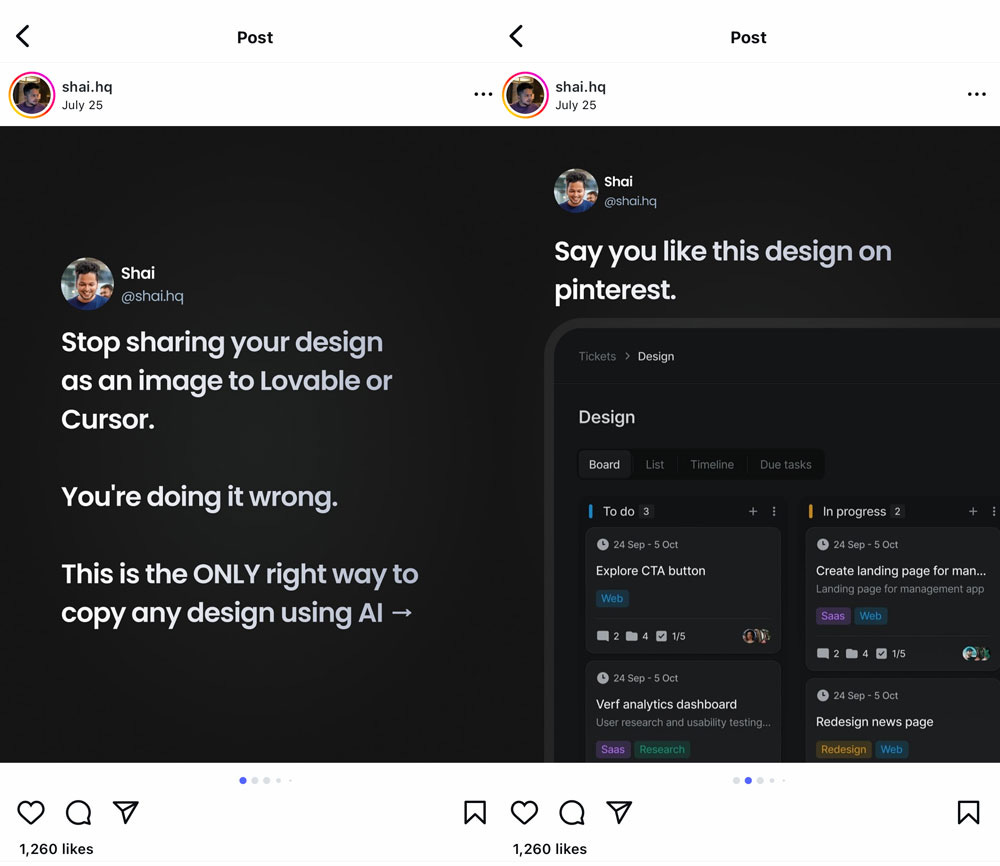We shouldn't let this become normalized.
On the widespread acceptance of plagiarism in the age of AI.
I’ll start this off by saying: I fought myself on this one. I didn’t want to write about it. It’s something that I find traumatic to discuss…it’s not funny, instructive, happy or healing - and I don’t want to add to anyone’s burdens. But yet, it needs to be said.
I believe there are many genuinely practical, legitimate and even altruistic uses of GenAI. I’m working what I believe are some of them in my daily life. I’ll say off the bat; I use this stuff and I do find it helpful for various purposes.
But I can’t escape my growing unease that most of these LLMs are essentially designed to be plagiarism machines; they are designed to make it easier to steal things. They’re designed to make it feel normal to steal.
A quick glance at the UI of whatever popular tool you’re using will reveal that there’s some easy button to upload a “reference” image. Most won’t make any attempt to figure out if you own that reference image or if what you’re doing with it is legal. They also won’t balk at copying a real person’s image, creative style, an author’s tone of voice, or a copyrighted character and will probably even make suggestions for you.
Any “regulation” is built into one of these tools is usually a joke - and easily circumvented.
The influencer marketing one sees on the social platforms all kinda looks like this:

In other words, the influencers of the world are out there sharing exact prompts to help you steal other people’s work - and proclaiming their effectiveness proudly!
In a year or two, will any idea be original or “ownable” anymore? What does it mean for humanity if the answer is no?
This isn’t just about individual artists, though as a creative person - I AM pissed. I didn’t want to be; I wanted to love it. But I can’t escape how egregious all of this is. How it’s enabling copyright abuse on a scale way too large to contain.
But no - it’s NOT just about artists.
It’s also about the fact that no one’s identity is safe. Any regular person can now simulate an entire human being in a few clicks. Their voice. Their face. Figure out where they live from a photo. That is TERRIFYING. To put a finer point on it:
Someone can ruin a person’s life by making a fake video about them and posting it online. They could leak their location to ICE. They can simulate someone a child knows (like a parent) very easily - and trick them into giving them all of their personal details. I won’t go on - I’m sure this is the stuff is keeping you up at night, too.
Yes, a lot of AI videos are super obvious right now. But the technology is getting better so quickly that we HAVE to decide what we’re going to do about these real-life consequences.
Do I think we should set fire to all the computers in the world and go live in the woods? No, not quite.
I think the technology has a place; but like all powerful technology, we need to work together to make sure there are appropriate usage regulations in place.
Have you heard of Leo Szilard?
I’ll tell you the short version: he was a Hungarian-born physicist who lived during the time of World War II. His work was foundational to the development of the atom bomb.
After the war was over, he founded the Council for a Livable World - a nonprofit organization dedicated to eliminating the U.S. arsenal of nuclear weapons.
Szilard understood the vast potential of the technology he’d help create for misuse and destruction and he dedicated the rest of his life to trying to contain those consequences.
It is my personal belief that if we could all take responsibility and accountability in the same manner, our world would become free from most of the suffering that exists today.
Progress without any concern for humanity is barbarism. Technology developed without conscience or restraint quickly becomes the instrument of dictators and tyrants.
So given my own place and influence in this unfolding tapestry, I’m asking myself every day - and I’m asking you:
How do we - you and me - shape the future of this technology for good? How do we lean into the opportunities for growth and steer away from the potential for destruction?
XOXO,
Cathy

